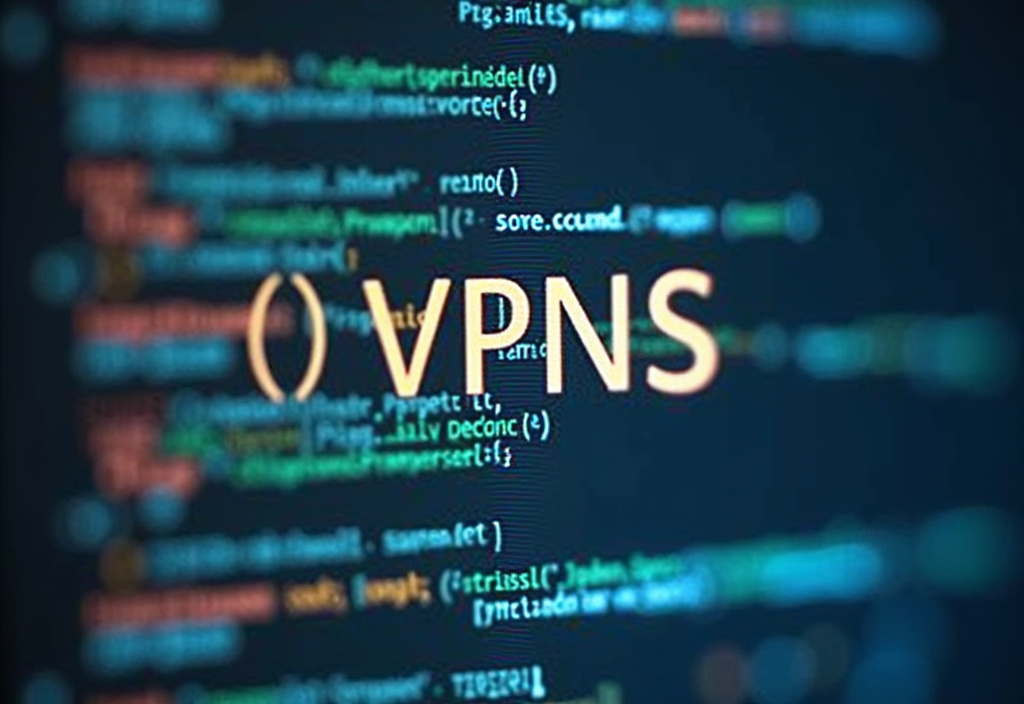VPNs for Home Tutors: Protecting Student Data

Table of Contents
student data security
In an increasingly digital world, home tutors are finding themselves handling sensitive student information regularly. From personal contact details and academic records to individualized learning plans and performance assessments, the data involved in tutoring can be highly valuable and requires stringent protection. This article delves into the vital role Virtual Private Networks (VPNs) play in safeguarding for home tutors.
As home tutoring evolves into a more technology-driven profession, with online lessons, collaborative digital workspaces, and cloud storage solutions becoming integral components of the experience, the risks associated with data breaches and privacy violations also escalate. A primary concern is ensuring compliance with privacy regulations and maintaining the trust of students and their families. Utilizing a serves as a vital tool in achieving this goal, acting as a digital shield to safeguard sensitive data.
The application of cybersecurity measures like VPNs is no longer optional – it is essential for responsible tutors intent on meeting both ethical and legal standards for data privacy. The implementation of a VPN is a practical response to the increasing number of cyber threats that can impact a home tutoring business. These threats can range from individual hackers trying to steal personal student data, to larger-scale attacks on the cloud services or platforms tutors may be using.
The core functionality of a VPN revolves around creating a secure, encrypted tunnel for internet traffic. This secure tunnel protects data as it travels between the home tutor's device and the websites, servers, and online platforms used in their work. Think of it like a private, armored car transporting valuable goods across a potentially dangerous city.
Without this protection, the data is like a regular car, susceptible to theft and interference. Without a VPN, data is transmitted in plain text, rendering it vulnerable to interception by hackers, surveillance entities, or even malicious actors lurking on public Wi-Fi networks. Imagine sending a postcard with sensitive information written on it – anyone can read it.
The encryption provided by a VPN transforms this plain text data into an unreadable format, thwarting any attempts to decipher it. This is akin to shredding the postcard into thousands of tiny pieces, impossible to reassemble without the proper key. This is particularly crucial when tutors are accessing student records, conducting online lessons with screen sharing, or storing lesson plans on cloud services – common activities that expose sensitive information to potential risks.
For example, during an online tutoring lesson, a tutor shares their screen to demonstrate a math problem. Without a VPN, a hacker intercepting this data stream could potentially see the problem, the student's answers, and even private messages exchanged during the session. An effective VPN solution also safeguards against IP address tracking.
An IP address is a unique identifier for a device connecting to the internet and can reveal a user's approximate location. This is valuable information for advertisers and marketers, but it can also be used for malicious purposes, such as tracking a tutor's movements or identifying their home address. A VPN masks the tutor's real IP address, replacing it with one from the VPN server.
This added layer of anonymity further strengthens , especially when collaborating with students across different geographical regions. Consider a tutor who works with students in different time zones. By using a VPN, they can avoid revealing their actual location, which can help to protect their personal safety and prevent unwanted contact.
Selecting the right VPN requires careful consideration and is a crucial step in ensuring effective data protection. Tutors need to prioritize VPNs with strong encryption protocols (such as AES-256), which is currently considered the gold standard for data encryption. This type of encryption is so strong that even the world's most powerful computers would take billions of years to crack it.
A no-logs policy is also essential, ensuring that the VPN provider does not track or store user activity. This guarantees that the VPN provider cannot be compelled to hand over user data to government agencies or third parties. A wide range of server locations is also important, allowing for optimal performance and bypass of geographical restrictions.
This ensures that tutors can always find a server that is close to their location, which will minimize latency and improve connection speed. Additionally, the VPN should be compatible with all the devices and platforms used by the tutor, including laptops, tablets, and smartphones. This means that the VPN should have apps for all major operating systems, such as Windows, macOS, iOS, and Android.
The integration of a VPN into a tutor's daily workflow should be seamless and unobtrusive. This means opting for user-friendly VPN apps with automatic connection features. These features allow the VPN to connect automatically whenever the tutor connects to the internet, ensuring that their data is always protected.
The tutor should also be able to easily switch between different server locations, depending on their needs. By choosing a reputable VPN and configuring it correctly, home tutors can significantly enhance their , protect their , and foster a more secure and private online learning environment.
Lesson plan protection
Furthermore, the benefits of a VPN extend beyond simple data protection. is a critical concern for home tutors. Customized lesson plans are often the result of extensive research, creative thinking, and years of experience.
These lesson plans represent intellectual property that tutors want to safeguard against unauthorized use, distribution, or modification. Using a VPN to protect your work from intrusion can keep all the data under lock and key! Encrypt all data before transferring or working on lessons with the use of a safe and secure VPN to ensure your hard work stays private.
Imagine a tutor who has spent weeks developing a unique and effective approach to teaching calculus. These lesson plans are not only valuable assets but also a reflection of the tutor’s expertise and skills. If these lesson plans were to fall into the wrong hands, they could be copied, sold, or used by competitors, depriving the tutor of potential income and recognition.
Cloud storage solutions, while convenient, pose inherent security risks. When lesson plans are stored in the cloud, they are potentially accessible to hackers who manage to breach the security of the cloud provider. While reputable cloud providers invest heavily in security measures, data breaches still occur.
A VPN encrypts the connection between the tutor's device and the cloud server, adding a layer of protection that makes it significantly harder for hackers to access the data. This is especially pertinent if the tutor is using a free or low-cost cloud storage service, which may have weaker security measures compared to premium offerings. Think of a VPN as adding a secure padlock to the door of a cloud storage locker.
Even if someone manages to pick the lock on the main storage facility, they still need the key to unlock the individual locker protected by the VPN. To ensure your privacy, it is important to set a VPN to secure all data that is transferred or stored. Tutors should also be mindful of the software and applications they use in their online lessons.
Many educational apps collect user data for analytics and marketing purposes. While this data collection may be legitimate, it can still pose a privacy risk, particularly if the app has vulnerabilities that hackers can exploit. A seemingly innocuous educational game could be secretly collecting data about students' learning habits, personal interests, or even their location.
A VPN can help mitigate this risk by masking the tutor's IP address and encrypting the traffic between the tutor's device and the app server. In addition, the VPN can block trackers and malicious websites, further enhancing privacy and security. It's like having a security guard at the entrance of your online classroom, preventing unwanted visitors from entering and monitoring the activities of those inside.
When possible, use a VPN while researching different study plans, that way you can ensure your privacy. is not just about protecting data; it's also about fostering a secure and effective learning environment. When students feel confident that their data is being handled responsibly, they are more likely to engage fully in their lessons and share their thoughts and ideas freely.
A student who is worried about their privacy may be hesitant to ask questions, participate in discussions, or share their work openly. By using a VPN, tutors can create a safe and trusting environment where students feel comfortable learning and growing. Also, by using a VPN, you can ensure that your student's data and information remains strictly private!
A VPN can also help tutors create a more personalized learning experience. By using a VPN to access educational resources from different geographical regions, tutors can broaden their teaching horizons and provide their students with a more diverse and culturally relevant curriculum. For example, a tutor could use a VPN to access online libraries or museums in other countries, providing students with virtual tours and enriching their understanding of different cultures.
Imagine a history tutor using a VPN to access primary source documents from archives in another country, giving their students a more authentic and immersive learning experience. The use of VPNs can also aid tutors in bypassing geographical restrictions on educational content. Some online resources may only be available in certain countries due to copyright restrictions or censorship policies.
A VPN can allow tutors to access these resources from anywhere in the world. This is particularly useful for tutors who are teaching students from different cultural backgrounds or who are preparing students for international exams. For example, a tutor preparing a student for an international baccalaureate exam could use a VPN to access past exam papers from different countries.
The ethical considerations surrounding VPN usage are also important. While VPNs can enhance privacy and security, they can also be used for unethical purposes, such as hiding illegal activities. Tutors should be aware of the potential misuse of VPNs and should use them responsibly.
It is the tutor's responsibility to research what activities a VPN should not be used for, as to not engage in any of those activities. While using a VPN is important to secure student data, it does not mean it can be used to conduct illicit and illegal activities.
privacy enhancement
Another critical consideration is the legal aspect of data privacy. Many countries have strict laws regulating the collection, storage, and use of personal data. Tutors who handle student data must comply with these laws, or they risk facing fines, lawsuits, and reputational damage.
Ignorance of these laws is not an excuse, and tutors must proactively educate themselves on the relevant regulations in their jurisdiction and in any jurisdiction where their students reside. The General Data Protection Regulation (GDPR) in the European Union and the Children's Online Privacy Protection Act (COPPA) in the United States are two prominent examples of such laws. GDPR imposes strict requirements on organizations that collect and process the personal data of EU citizens, regardless of where the organization is located.
This means that even a tutor based outside the EU must comply with GDPR if they teach EU students online. COPPA protects the privacy of children under 13 years of age online, requiring parental consent for the collection and use of their personal information. Tutors who teach students from these regions must be aware of these regulations, as both are there to ensure online safety.
Failing to comply with GDPR or COPPA can result in significant penalties. GDPR fines can be as high as 4% of an organization's annual global turnover, or €20 million, whichever is greater. COPPA violations can result in fines of up to $43,792 per violation.
In addition to financial penalties, non-compliance can also damage a tutor's reputation and erode the trust of students and their families. Maintaining that good faith and trust ensures that students are more willing learn in a transparent, and safe environment. A VPN can help tutors comply with these data privacy laws by providing a secure and private online environment.
By encrypting data and masking IP addresses, a VPN can reduce the risk of data breaches and unauthorized access to personal information. However, it is important to note that a VPN is not a silver bullet for data privacy compliance. Tutors must also implement other measures, such as data minimization (collecting only the data that is necessary), data security (implementing appropriate security measures to protect data), and data transparency (informing students and parents about how their data is collected, used, and stored to ensure a strong ).
Each of those measures when done right, can have a strong effect on the data. It's essential for tutors to have a clear and comprehensive privacy policy that outlines their data collection and usage practices. This policy should be easily accessible to students and parents and written in plain language that they can understand.
The policy should explain what data is collected, how it is used, how it is stored, and how it is protected. It should also explain the rights of students and parents, such as the right to access their data, the right to correct inaccuracies, and the right to request deletion of their data. Transparency is key to building trust and ensuring compliance with data privacy laws.
This means being upfront about data practices and giving students and parents control over their personal information. It is also important to always refer to the countries privacy laws, to ensure you are acting in good compliance. Tutors should also exercise caution when using third-party tools and platforms.
Many educational apps and online services collect user data for various purposes, and these data collection practices may not be transparent or compliant with data privacy laws. Before using any third-party tool, tutors should carefully review the privacy policy and terms of service to understand how the tool collects, uses, and protects data. They should also consider whether the tool is necessary for their teaching purposes and whether there are alternative tools that offer better privacy protections.
When using third-party tools, tutors should minimize the amount of personal data they share and configure the tool's privacy settings to the most restrictive level possible. These external tools used should also be protected by a VPN, as it is possible for them to experience a breach. Not only the tutor, but student should also be protected with a VPN when using these third-party tools.
In addition to data security, tutors should also be mindful of their online reputation. In today's digital age, a tutor's online presence can have a significant impact on their business. Negative reviews, social media posts, or online comments can damage a tutor's reputation and make it difficult to attract new students.
Tutors should actively monitor their online presence and respond promptly and professionally to any negative feedback or complaints. They should also be mindful of the content they share online and avoid posting anything that could be considered offensive, controversial, or inappropriate. A positive online reputation is essential for building trust and attracting new students and by securing and protecting data, you reinforce the good faith of your clients.
By focusing on the , you are working to improve your business and ensure your place amongst others.
lesson plan protection
Beyond the legal and ethical considerations, proactive risk management is paramount for home tutors. Data breaches can occur due to various factors, including weak passwords, phishing attacks, malware infections, and human error. To mitigate these risks, tutors must implement a comprehensive security plan that includes strong passwords (using a password manager can help generate and store complex passwords), regular software updates (patching security vulnerabilities), anti-virus software (protecting against malware), and employee training (educating tutors about phishing scams and data security best practices).
Regular data backups are also vital, ensuring that data can be recovered in the event of a data loss incident. These risks can be mitigated to ensure the tutors data and lessons remain safe and protected. Remember to protect against the simple mistakes by utilizing techniques to reduce the risks of data being leaked.
Phishing attacks are a common threat to data security. These attacks involve sending fraudulent emails or messages that trick recipients into revealing sensitive information, such as passwords, credit card numbers, or social security numbers. Tutors should be wary of suspicious emails or messages and avoid clicking on links or opening attachments from unknown senders and should always remember techniques.
The way to avoid having your data leaked, is to not click any email or messages that you do not recognize. Malware infections can also compromise data security. Malware includes viruses, worms, trojans, and other malicious software that can steal data, damage systems, or disrupt operations.
Tutors should install anti-virus software on their devices and keep it up to date. They should also be cautious when downloading files or installing software from the internet, as these files may contain malware. Scan all files before opening them to avoid any malware.
Human error is another significant cause of data breaches. Tutors may accidentally delete files, send confidential information to the wrong recipient, or leave their devices unattended in public places. To minimize the risk of human error, tutors should implement clear data handling procedures and provide regular training to their staff.
They should also enforce strict access controls, limiting access to sensitive data to only those who need it. You can train the personnel in your business to take the extra steps necessary to avoid these issues and mistakes. Incident response planning is also crucial.
Despite the best efforts to prevent data breaches, they can still occur. Tutors should have a plan in place to respond to data breaches quickly and effectively. This plan should include procedures for identifying the breach, containing the damage, notifying affected parties, and recovering data.
A well-executed incident response plan can minimize the impact of a data breach and protect the tutor's reputation, and the . These attacks are becoming increasingly sophisticated, so you need a proper defense for when the inevitable event occurs. The choice of a VPN provider must also be carefully considered.
Not all VPN providers are created equal, and some providers may have questionable security practices or privacy policies. Tutors should research VPN providers thoroughly before selecting one, paying attention to their encryption protocols, logging policies, server locations, and reputation. Reading reviews from trusted sources and seeking recommendations from other cybersecurity professionals can help make an informed decision.
Take your time choosing the right VPN provider, as it will be the backbone of your data securing framework. Regularly auditing security measures is essential to ensure their effectiveness. Tutors should conduct periodic security audits to identify vulnerabilities and weaknesses in their systems and procedures, that way you know what your getting into.
These audits can be performed internally or by external cybersecurity experts. The results of the audits should be used to improve security measures and address any identified vulnerabilities. If you identify a vulnerability, make sure to take actions to fix it quickly and accurately.
Ultimately, the best approach to protecting student data is to adopt a layered security approach that combines technical measures (such as VPNs, anti-virus software, and strong passwords) with organizational measures (such as data handling procedures, training, and access controls) and legal measures (such as compliance with data privacy laws and a comprehensive privacy policy). By implementing this multi-faceted approach, tutors can significantly reduce the risk of data breaches and protect the privacy of their students. If that security is maintained and built upon, your business will continue to operate for years to come.
By considering that will boost your business, as students and parents will be more willing to give you their data.
home tutor VPN
In conclusion, the integration of a is no longer a luxury but a necessity in today's digitally driven educational landscape. The benefits extend far beyond simple data encryption, encompassing enhanced privacy, protection of intellectual property (), compliance with data privacy laws, and the fostering of a secure and trustworthy learning environment. By prioritizing , home tutors can build stronger relationships with their students and families, attracting new clients, and solidifying their reputation as responsible and ethical educators committed to providing students with high-quality tuition.
However, it is crucial to remember that a VPN is just one component of a comprehensive security strategy. Tutors must adopt a holistic approach that encompasses technical, organizational, and legal safeguards. This includes implementing strong passwords, using anti-virus software, providing data security training, establishing clear data handling procedures, complying with data privacy laws, and maintaining a transparent privacy policy.
Each of these measures will improve and secure data, creating a much safer and secure environment for students and tutors. By having these measures in place, it ensures a more secure and stable relationship. The ongoing evolution of technology necessitates continuous learning and adaptation.
New threats and vulnerabilities are constantly emerging, requiring tutors to stay informed about the latest data security trends and best practices. Regularly updating software, reviewing security policies, and seeking advice from cybersecurity professionals can help tutors stay ahead of the curve and maintain a robust security posture and a high . These protections should be the best that are available to your business, and they should also be routinely updated.
The ethical implications of data handling should also be at the forefront of every tutor's mind. While complying with data privacy laws is essential, tutors should also strive to exceed these requirements by adopting a data minimization approach, collecting only the data that is strictly necessary for their teaching purposes. They should also be transparent about their data practices and give students and parents control over their personal information.
Building trust and fostering a sense of transparency contributes to a more positive and productive learning experience. Students are more than just users; they are complex individuals who deserve respect and protection. Treat them with the respect they deserve for giving you the business.
By securing their business, they are more willing to retain their business with you. Ultimately, the decision to invest in technologies such as a reflects not only a commitment to data security, but also a broader dedication to ethical and responsible teaching practices. In an increasingly competitive market, tutors who prioritize data privacy and security can differentiate themselves from their competitors and build a strong reputation for trustworthiness and integrity.
is a way to protect your students, protect your data, and improve your business. Taking care of your business will also open up new doors and opportunities you would have never had. As the demand for online tutoring continues to grow, the importance of data security will only increase.
Tutors who take proactive steps to protect student data will be well-positioned to thrive in this evolving landscape, building successful businesses, ensuring their place, and fostering lasting relationships with their students and families. Investing in a secure system is always the right choice for your data. If you value the , and the business you have made, securing it is worth the time and effort into ensuring that all remains fully secure.
Data is the backbone of our company, keep it secure, and protect it as you are working to protect your livelihood. That security and commitment will be noticed and praised, which is how you become and remain one of the best in the industry.
Stay Updated
Get the latest VPN news, tips, and exclusive deals to your inbox.




